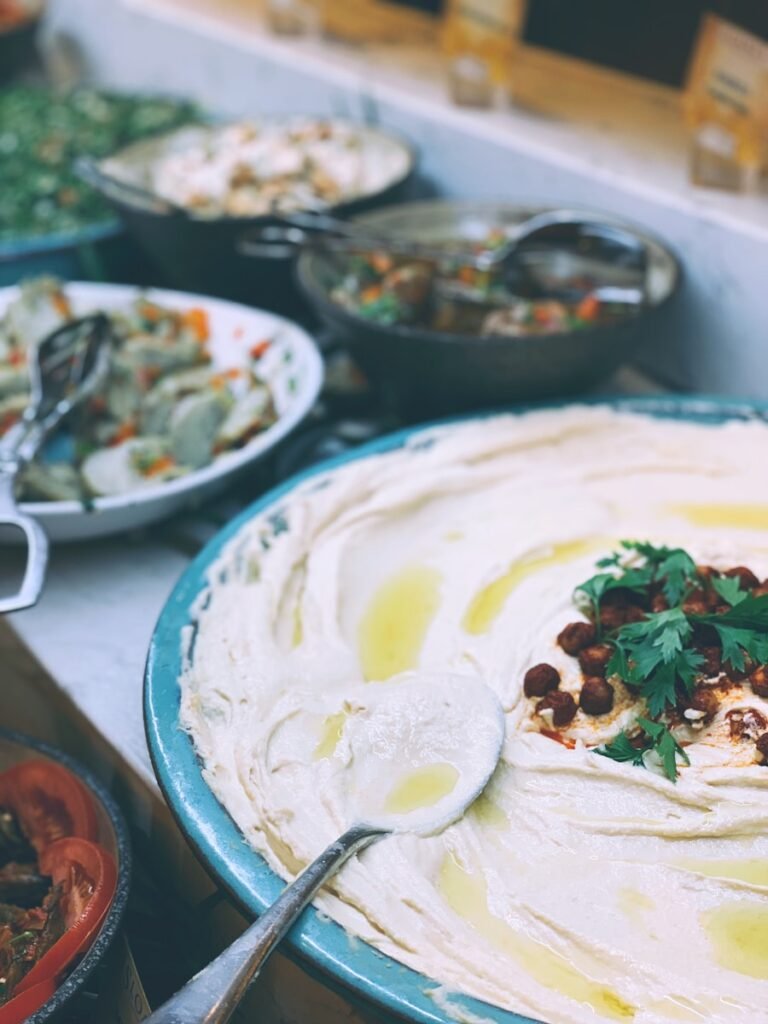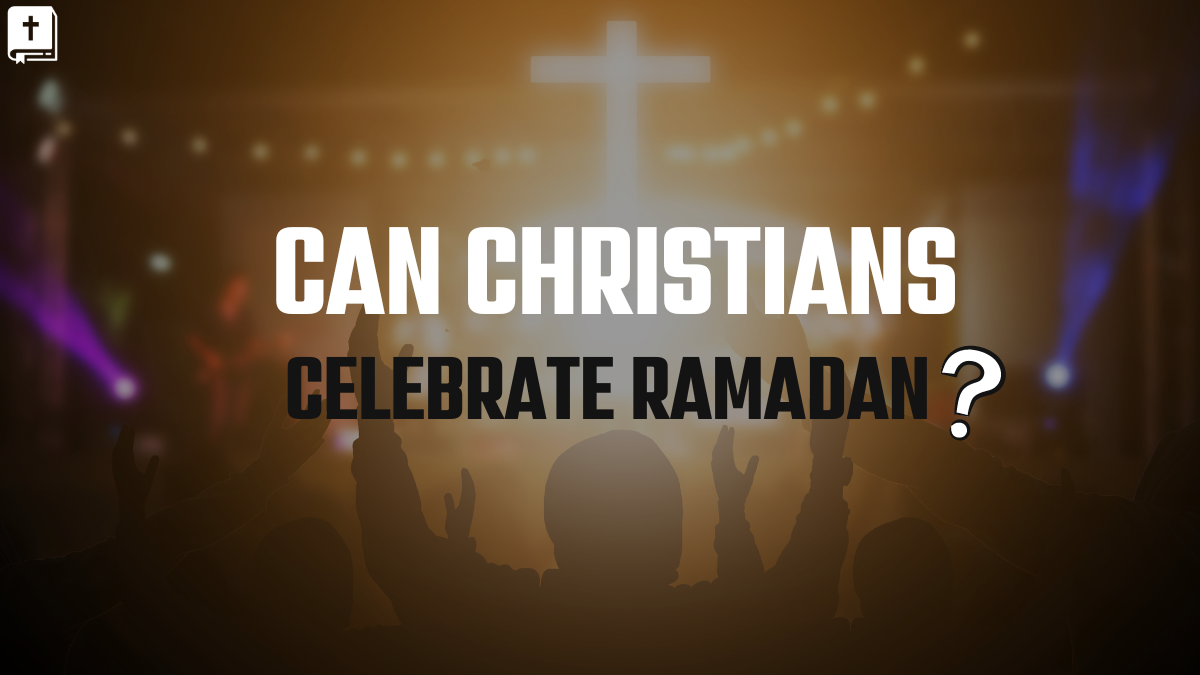Can Christians truly connect with Ramadan, a key month for Muslims, while keeping their own faith strong? Can Christians Celebrate Ramadan?

This question makes us think about how faith and community come together during Ramadan. We’ll look into how Christians can join hands with their Muslim friends. We’ll see how they share values and the need for kindness. Let’s dive into this mix of spirituality and community together.
Understanding Ramadan
Ramadan is a month of deep importance for Muslims. It’s a time of fasting and spiritual reflection. This Islamic holiday celebrates the first revelations of the Quran to the Prophet Muhammad. It’s a key moment for millions worldwide.
The true meaning of Ramadan goes beyond not eating or drinking. It’s about building community, looking inward, and growing in faith. It’s a time for spiritual growth and self-improvement.
Definition and Significance
Ramadan is one of the Five Pillars of Islam. It’s a core part of the faith. During this month, followers fast to connect more deeply with God, known as taqwa. This journey helps Muslims become better people, seek forgiveness, and help others.
Duration and Timeline
Ramadan lasts 29 or 30 days, based on the lunar calendar. This year, it starts on March 22 and ends on April 21. Muslims fast from dawn to sunset, not eating or drinking during the day.
This shared experience of fasting brings people together. It helps break down cultural and social barriers. It’s a time of unity and spiritual connection.
Historical Context of Ramadan
Ramadan has a deep history in the Islamic faith. It started in the 7th century, tied to key events in the Prophet Muhammad’s life. He received revelations that became the Quran during this time. This background helps us understand why people fast and pray during Ramadan today.
The Prophetic Origin of the Month
Ramadan is closely linked to the Prophet Muhammad’s teachings. He shared divine messages, and fasting became a way to purify the soul. This led to communal prayers, building unity and devotion in the early Muslim community.
Evolution of Ramadan Practices
Over time, Ramadan has changed, yet kept its core values. It started with fasting and prayer but now includes family time, charity, and festive meals. Each culture adds its own twist, making Ramadan richer for everyone. For more on supporting Muslim neighbors during Ramadan, check out this helpful guide.
Similarities Between Ramadan and Lent
Both Ramadan and Lent are times of fasting that help people grow spiritually. They offer chances for deep thought and a closer bond with faith.
Fasting Practices
Muslims fast from dawn till sunset during Ramadan, giving up food and drink. Christians observe Lent for 40 days before Easter, sometimes giving up certain foods or activities. Both traditions focus on self-control and sacrifice, showing how fasting is a way to worship and reflect.
Spiritual Reflection and Growth
Ramadan helps Muslims connect more with Allah. Lent reminds Christians of Jesus’ sacrifices. Both periods aim to help followers grow spiritually through prayer and reflection.
Charity is key in both, showing the importance of kindness and helping others. These shared values bring people together, helping them grow closer to their faith and to each other.
Differences Between Ramadan and Lent
Ramadan and Lent show how Islam and Christianity have their own traditions. They highlight the wide range of religious practices within monotheistic beliefs. Each observance has its own special meaning in its faith.
Timing and Duration
One big difference is when Ramadan and Lent happen. Ramadan follows the Islamic lunar calendar, so its dates change every year. It lasts a whole month, with fasting from dawn till sunset.
Lent, on the other hand, has a set time in the Christian calendar. It starts on Ash Wednesday and goes for 40 days, ending before Easter Sunday. This shows how different religions have their own ways of observing spiritually.
Pillars of Each Faith
The core beliefs of Islam and Christianity also show big differences. In Islam, fasting in Ramadan is one of the Five Pillars. It’s about self-control and connecting more with Allah.
In Christianity, Lent is about penance and self-denial. It’s a time to think about Jesus’s sacrifices. Both traditions offer unique ways to reflect and grow spiritually. Learning about these differences can deepen our understanding of both.

Can Christians Celebrate Ramadan?
Christians can join in Ramadan celebrations by building bridges with other faiths. This helps everyone understand and respect each other better. By learning about Muslim traditions, Christians gain a new view of Ramadan’s importance. This leads to more love and acceptance across different beliefs.
Interfaith Connections
Reaching out during Ramadan shows Christians are open to learning from others. They start to appreciate the deep culture of their Muslim friends. This helps build strong, diverse friendships based on caring and understanding.
Participating in Community Events
Being part of community events is key. Christians and Muslims come together for iftar meals, breaking the fast. These meals let Christians celebrate Ramadan with their Muslim friends. It makes their bonds stronger and brings everyone closer, no matter their faith.
The Spiritual Significance of Ramadan for Muslims
Ramadan is a special time for Muslims. It’s filled with deep devotion in spiritual life. People fast, pray, and give to charity to connect more with Allah and think about their growth.
Fasting and Prayer Rituals
Fasting from dawn till sunset during Ramadan cleanses the soul and builds spiritual strength. It’s not just about not eating. It helps us feel for those who have less. Muslims pray more during this month, including nightly Taraweeh prayers. These prayers help deepen their understanding of the Quran.
Acts of Charity
Charity is key in Ramadan. Many Muslims give zakat, or almsgiving. This act shows social responsibility and compassion. It brings the community together as people share what they have with others.
This mix of fasting, prayer, and charity boosts spiritual growth. It shows a deep commitment to helping others.
How Christians Can Support Their Muslim Friends During Ramadan
As Ramadan comes closer, Christians can show their support in meaningful ways. A respectful approach can help build stronger relationships and create a sense of community. By understanding the fasting schedule, Christians can be more compassionate towards their Muslim friends and neighbors.
Respecting the Fasting Schedule
It’s important to understand the fasting schedule to show respect for Muslim friends. The fasting hours from dawn till sunset are tough. Showing understanding is key. Simple acts like avoiding meals during these hours or being careful when talking about food can make a big difference.
Wishing Goodwill
Wishing goodwill is a powerful way to support Muslims during Ramadan. Saying “Ramadan Mubarak” or “Ramadan Kareem” shows real respect for their beliefs. These greetings create a caring atmosphere and strengthen community bonds. Being there for your Muslim friends during Ramadan can start a foundation of goodwill and deepen your friendships.
The Importance of Interfaith Dialogue
Interfaith dialogue is key to building bridges between different faiths, especially between Christians and Muslims. It helps people talk openly and with respect. This leads to a better understanding between cultures and helps break down stereotypes.
Such talks are not just for learning. They let people share their values and beliefs. This makes both communities richer.
Understanding Cultural Differences
It’s important to understand and respect cultural differences to live in harmony. Interfaith dialogue is a place where people share their traditions and views. By learning about each other’s ways, Christians and Muslims grow to respect each other’s spiritual paths.
Opportunities for Spiritual Conversation
Ramadan is a special time for spiritual talks between Christians and Muslims. It’s a chance to learn from each other during a period of fasting and prayer. Through these conversations, communities can grow more compassionate and work towards living together peacefully.
FAQ
Can Christians Celebrate Ramadan?
Yes, Christians can join in Ramadan by going to interfaith events and respecting Muslim traditions. This helps build community and strengthens faith bonds.
What are the key practices during Ramadan?
Key practices include fasting from dawn to sunset, praying more, and reading the Quran. People also do acts of charity. These help with spiritual growth and community support.
How is Ramadan different from Lent?
Ramadan is a month-long fast, while Lent is 40 days before Easter. Ramadan focuses on submitting to Allah, and Lent on penance. Both periods are for spiritual growth.
Why is interfaith dialogue important during Ramadan?
Interfaith talks during Ramadan help us understand each other better. They break down stereotypes and show we share common values and spirituality.
What gestures can Christians offer to show support during Ramadan?
Saying “Ramadan Mubarak” or inviting friends to iftar shows kindness and respect. These actions strengthen community and understanding.
What is the significance of acts of charity during Ramadan?
Charity, or zakat, is key in Ramadan. It shows social responsibility and compassion. It helps Muslims support the needy and build community.
What spiritual benefits do Muslims gain from Ramadan?
Muslims get spiritually pure and closer to Allah through fasting and prayer. Acts of charity also bring a sense of community and belonging.
How can Christians better understand the experiences of their Muslim neighbors during Ramadan?
Christians can respect fasting times and understand the physical challenges. Talking about Ramadan’s meaning and practices helps too.

Rockin’ the faith, one verse at a time!
Growing up, the Bible’s stories deeply impacted me. Now, with over 15 years of preaching experience, I blend timeless teachings with modern technology, making them relevant for today’s world.
Bible Hub Verse is my platform to share historical insights and thought-provoking articles, exploring both familiar and uncommon Christian topics. My passion is building a welcoming online space for everyone to learn, grow in their faith, and discover the Bible’s enduring message.
Join the journey!
God bless you.









